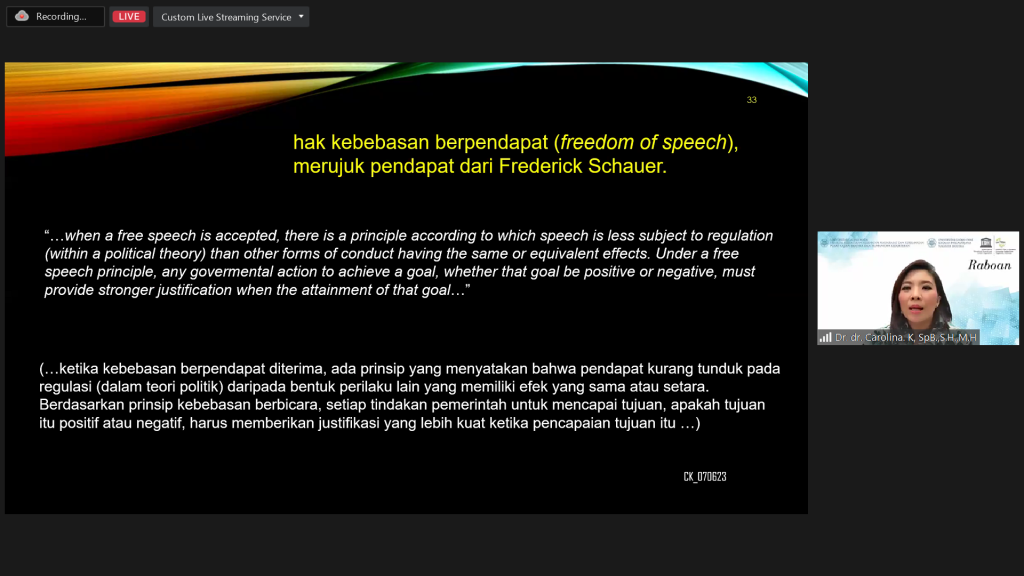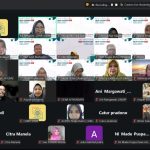
On Wednesday (7/6), the Center for Medical Bioethics and Humanities held the Raboan Discussion Forum. The topic discussed was the Ethical Aspects in RUU. The speaker for this discussion was Dr. dr. Carolina K, SpB., SH., MH and it was moderated by dr. Gregorius Yoga Panji Asmara, S.H., M.H., CLA.
The medical/dental profession has ethical, disciplinary, and legal responsibilities. Bioethical principles, such as beneficence, non-maleficence, autonomy, and justice. Violations of discipline or the law undoubtedly contravene the code of ethics. The Omnibus Law (OBL) was made with good intentions, aims to overcome the hyper-regulation. Ethics in the RUUK OBL explains professional organizations, legal protection, Health Workers of Foreign Nationals (TKWNA), and health funding.
Multi-professional organizations will risk creating double standards in ethical enforcement that will endanger patient safety. Apart from that, ethical violations in one professional organization (OP) which may not be considered as ethical violations in other organizations, and potentially exploited by certain elements to move on another OP so that the safety of the public as patients will be threatened later.
OP has 2 functions, the first is for the general public: guaranteeing medical standards and having privileges related to ethical provisions in medical services. The second is for the community of doctors: representing the democratic rights of doctors in terms of administration and politics. OP is a partner made by the government, so if a law is to be made it must be with the hands of OP and the government together. OP is not deleted but it hadn’t been discussed in the making of OBL, so there will be a risk that a different standard will emerge.
The one who well understands how a profession works is the profession itself. Therefore, if committee like to create about centrally regulate the code of ethics for a profession, then it’s not effective. Legal protection for medical personnel/health personnel so that defensive medicine does not occur. So that this doctor is safe from the law. A good health care needs a good system, not just a good doctor. So that justice is needed for the appropriate allocation of health funds.
Scientific culture is a way of thinking, behaving, and behaving and acting towards humans who are involved in the world of science, in accordance with scientific principles and scientific ethics. Change will always exist because there is nothing that doesn’t change, even the change itself will change. Collaborate for better changes, not by dividing or dividing, but by respecting differences for a good cause. Get used to reading so that you understand better in interpreting something and not misinformation.
Writer: Safirra Afifah Firanka
Watch full video here






